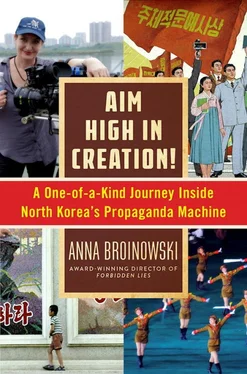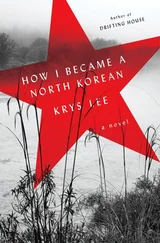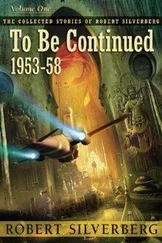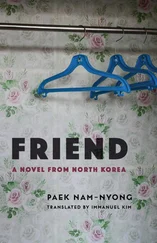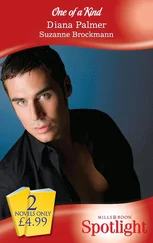I wonder if the North Koreans know that Western assistant directors are no more oppressed than theirs. A lot less oppressed, if you factor in the lives they lead off set. I am dying to find out.
I close my notes and make myself a Nescafé in the Dormy’s plastic jug. On the TV, Kim Jong Un stands on a camouflaged platform in a cashmere coat, watching torpedoes obliterate some tiny island. He sports the “youth ambition” haircut pundits say has been cultivated to make him look like his beloved grandfather. Kim Jong Il’s “speed battle” bouffant is obviously not cool any more. But his films may be, if I can pull this off.
I sip my coffee and gaze at the LED screens flashing messages of capitalist inspiration in the fading light: Life’s Good. Imagination At Work. Just Do It . I imagine myself following Kim’s rules in the decadent West, with an Australian cast and crew.…
Me as the Creative Commander, leading the laconic gaffers and grips in socialist group chants. Ordering my sophisticated actors to throw away their iPhones and embrace the zealous collectivism of a Juche boot camp. Putting them through gruelling exercises on Bondi Beach until their Western egos evaporate. Nurturing in them a fierce love for the Australian working class by taking them to monster-truck rallies out west. Introducing them to the courageous anti-CSG farmers to convert them to our noble cause. Taking the bad-guy actors to the Pilliga gas wells to ignite in their hearts a burning, murderous hatred for the enemy.
If anyone dares to question Kim’s rules, I will hold marathon self-criticism sessions until they relent. Together, at Juche speed, we will create a propaganda masterpiece that starts with a humble gardener discovering that evil miners are drilling under her park and ends with a thousand villagers rising up to join her in an epic battle against the gas-fracking, capitalist swine. We will use melodramatic acting, post-dubbed sound, minimal cutting, and lots of crash zooms. We will assimilate the People’s revolutionary ardour until we can feel the very warmth of their breath. We will passionately devote ourselves to our seed: The People United Will Never Be Defeated. And of course, there will be lots of group singing.
Will it work?
Or am I completely insane?
CHUN CHUL WOO HAS THE CHATTY charisma of someone who sells things on TV. He is a celebrity in South Korea—promoting his grocery franchise through top-rating cooking shows. He thinks my Kim Jong Il–style movie is a terrible idea: “It will be boring. You have to have many speeches about the greatness of the Leaders, and even in the violent fight scenes, the villain must take ten minutes to die, because he has to talk about all the ideological errors he made.”
Chun grins at me, teasing: “You will do a better job than a male director, because women are more meticulous. But if you really want it to work, spice it up with a sex scene.”
Chun escaped North Korea as a student while studying engineering in Berlin. When the Wall fell in 1989, he crossed over and travelled to Seoul, where he worked his way into broadcasting. Chun’s business-savvy approach to life has taken time to learn: when he first moved to East Germany in 1986, he was a proud Juche socialist who believed North Korea was the most affluent country in the world. He lived in denial, stunned that the Germans could buy whatever they wanted in supermarkets and criticise their politicians without punishment. When two African students asked Chun who Kim Jong Il was, he was so outraged he beat them up, locked them in a room, and read them Kim’s entire works on Juche until they understood.
It took a year for Chun to decide to defect: “It was hard to come to grips with the huge discrepancy in reality; so much so, I was depressed. However, with time, I realised we had been cheated by the North Korean government and that it was a liar. I thought about why North Korea was so poor, and what on earth my government was on about. Also, I pondered why even in a socialist country like East Germany, it’s okay to criticise the president and nobody is charged. But North Koreans cannot say it is wrong to pass power from father to son.”
Chun shed his delusions and embraced his new reality in Seoul, with some adjustments. He was used to the emotional way in which North Korean anchors read the news and thought South Korea’s low-key TV presenters were dreadful. He avoided the red-light district of Itaewon, where US soldiers drank, because he’d been brought up to believe Americans were subhuman monsters: half-wolf, half-man. He found South Korean movies strange, because there was no clear delineation between good and evil, and you weren’t sure who to be happy for when someone died.
Speaking with Chun in his airy office, surrounded by his sparkling awards, it’s clear the thing he misses most about North Korea is its cinema: “When watching North Korean movies, I would be taken away by the emotional flow. They are good at capturing emotional moments, unlike South Korean movies, which are subdued. When I was young, I looked forward to the day of the premiere, since new films are not shown on TV for ages. We had no other pastime. People are excited by a premiere; there is chaos as they try to buy tickets. There are rogues who go berserk and use violence. In North Korea, bashing people up is not illegal and no charges are laid.”
Chun loved the 1971 melodrama Flower Girl —its scenes of the young heroine, being abused by her Japanese landlady, made him cry. He also loved every movie by Shin Sang Ok. He was not alone: Shin’s movies were the first to put sex on North Korean screens. Until then, love was expressed through lingering looks or suggestive close-ups of the heroine’s silky, ankle-length hem. But Salt , which won Shin’s wife, Choi Eun Hee, best actress at the 1985 Moscow Film Festival, had a scene in which a Chinese mercenary tries to rape Choi, exposing her milky thigh. Chun and his friends went back to the cinema repeatedly, just to see that brief white flash of flesh.
I ask Chun what happens to North Korean directors when they make a bad film. He slashes his finger across his throat and gurgles: “Execution!” Then he chuckles. “Well, maybe not that extreme, but they will be harshly reprimanded. They’ll be sent to a labour camp. And actors who act badly are faced with self-criticism. They don’t get promoted. But no director would ever dare to make movies against the regime in the first place.” I guess, correctly, that Chun does not think Kim Jong Il was a cinematic genius: “Absolutely not! But even in his political career, cinema was the most interesting field for him. There were many beautiful actresses. His wives were all actresses. They followed his orders without question, and got on TV. He must have enjoyed it.”
For a moment, Chun looks uncharacteristically sad: “If Kim Jong Il had given more attention to science and technology and less attention to film, North Korea might be better off today.” I ask if he can remember any movie songs, and then he’s smiling again. “My favourite is from Chun-Hyang Story . It’s a remake by Shin Sang Ok. The reason I like it is the lyrics are only about love, and it made young people cry. Any song without politics becomes an instant hit in North Korea.”
Chun starts to sway: “ Love, love, my love. Looking this way, you are my love, la-dum-dum my love …” He stops, excited. “There are also heaps of marching songs!” He taps his knees, singing in an exuberant tenor, without irony: “ Comrades, please be ready, with armed hands… In a fierce combat, defeat the enemy !” He moves on to a song from his preschool days, thoroughly enjoying himself now: “ Kids’ tank rolling on, our tank rolling on . . ! ” Chun has forgotten my camera’s there. He bounces and sings, gazing out the window—lost in another world.
Читать дальше
